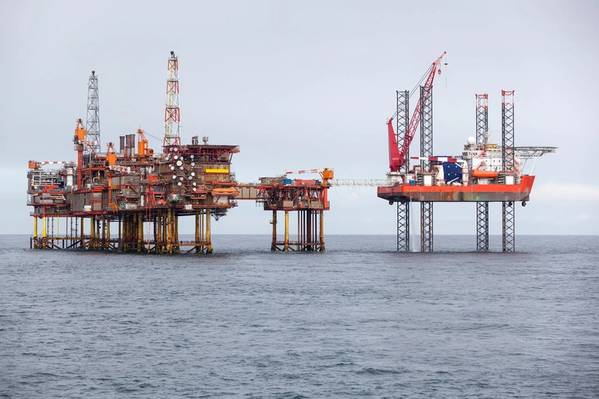
The British government's proposed plans to increase a windfall tax on North Sea oil and gas producers would lead to a 12 billion pound ($16 billion) drop in revenue to the state, an industry group said on Monday.
The Labour government said in late July it would increase the Energy Profits Levy (EPL) from 35% to 38% starting Nov. 1, bringing the headline rate of tax on oil and gas activities to 78%, among the highest in the world. Its duration was also extended by a year to March 2030.
The changes will also include scrapping the levy's 29% investment allowance, which lets companies offset tax from capital that is re-invested.
The Treasury has said that the tax contributions from oil and gas companies will help fund the government's plan to rapidly ramp up renewable energy capacity.
Industry group Offshore Energies UK, however, forecast that the changes to the EPL would reduce tax revenue by 12 billion pounds between 2025 and 2029 compared to the current tax regime.
Capital investment in the sector over the period is expected to fall to 2.3 billion pounds from around 14 billion pounds, OEUK said.
The proposed tax changes "will trigger an accelerated decline of domestic (oil and gas) production, and a corresponding reduction in taxes paid, jobs supported, and wider economic value generated," OEUK CEO David Whitehouse said in a statement.
A Treasury spokesperson said: "We are committed to maintaining a constructive dialogue with the oil and gas sector to finalise changes to strengthen the windfall tax, ensuring a phased and responsible transition for the North Sea."
The Labour government has set ambitious targets for carbon emissions cuts that call for a rapid build up of renewable power and a shift away from oil and gas.
North Sea production has declined steadily from a peak of 4.4 million barrels of oil equivalent per day (boed) at the start of the millennium to around 1.3 million boed today. It is forecast to decline to less than 200,000 boed by 2050, according to the North Sea Transition Authority (NSTA) regulator.
(Reuters - Reporting by Ron Bousso; Editing by Andrew MacAskill and Tomasz Janowski)